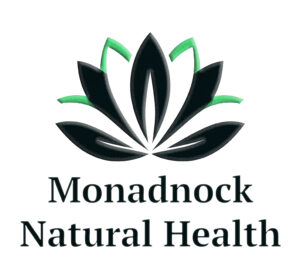When I saw him a couple of years ago, I noticed it at once. Something about him was different. Biting my tongue, I thought, “My god, he looks like he’s dying.” My childhood friend.
From the perspective of a health practitioner and out of general concern for the welfare of others, it can be difficult to watch someone’s health deteriorate. And I don’t just mean my own friends and family; I see this every day.
People are determining, by their daily habits and decisions, what their health, and ultimately their quality of life will be in the future. Whether or not they will be around to see their grandchildren, and in some cases even their own children, grow up.
Not long ago, I was able to time a trip to New York when my dad was in from Ireland. Though our stay was short as thieves, we were able to get together for breakfast. We sat across from each other, family again. One… Two… Three… Four… My jaw dropped as he stirred them, the heaped upon teaspoons of sugar, into his small cup of coffee. I knew right there and then, he had a sugar problem. And of course, I wanted to help him. I mean, have you ever seen the pictures of someone with advanced diabetes? I don’t know about you, but I’d rather meet a different demise.
Every day, people like my father and my childhood friend seal their fate by their own conscious actions. Conscious, I assume. But how could someone, once it is clear, consciously choose to lose their health? This question plagues me. Why?
The easy answer might be lack of education or understanding. And, yes, it is true, I find disinformation & incomprehension cut a large swath through the patient’s I see. However, even if armed with the proper direction, many are unphased. I sent my father a self-purification kit and tailored supplements to start him down the path of renewal, yet months passed without a step. He admits understanding the consequences of his dietary habits and, alas, the inability to change them.
So it becomes a question of not if, but when. It’s like gambling and knowing with absolute certainty of a loss. But the casino was sure nice. How do I help them? Is the gentle unassuming offer of help if they would like it enough? My strong rescue impulse aside, I’ve been around long enough to know that only those who want to be helped can be. Isn’t the lure of the roulette that it looks like a whole lot of life – yet just a little death? What are the odds?
And what are the evens? I offered my dying friend the option of coming to stay with me for a while. Personal, 24/7 guidance; probably his best chance for survival. Against the odds for years I’d gently nudged him with the probable outcome of his lifestyle, knowing that that was a euphemism. Though I didn’t specifically predict colon cancer, with his regimen (smoking, stress, long hours, food in name only) it was no surprise. His gut was simply the first checkmark on the long list of possibilities.
Even now, I don’t know if he will take me up on my offer or even if it’s too late. I don’t know whether he will get to see his children graduate from high school. I don’t know if he can even accept my help. I don’t know if my father will find the strength to change. Whether the love that gave me life will let me thank him by extending his. Time will tell. And the one sure thing about time?… is that we all think we have it.
But I do know this; I will continue to reach out to people through my article writing and other programs. What I do works. Call me stubborn, but my disease, contagious I hope, is a deliberately naïve optimism. I will continue to let them know that if they have unresolved health problems, there might be an answer: Where I come from there usually is. That it might not be too late: Where I come from it usually isn’t. Don’t be fooled into thinking that your choices don’t matter – they do.
Evidently, it is in my nature to care even if others do not. Or aren’t so sure. Or care more about other things somehow. My choice, which matters, is to do this; your choice which matters even more, is to this with me.

